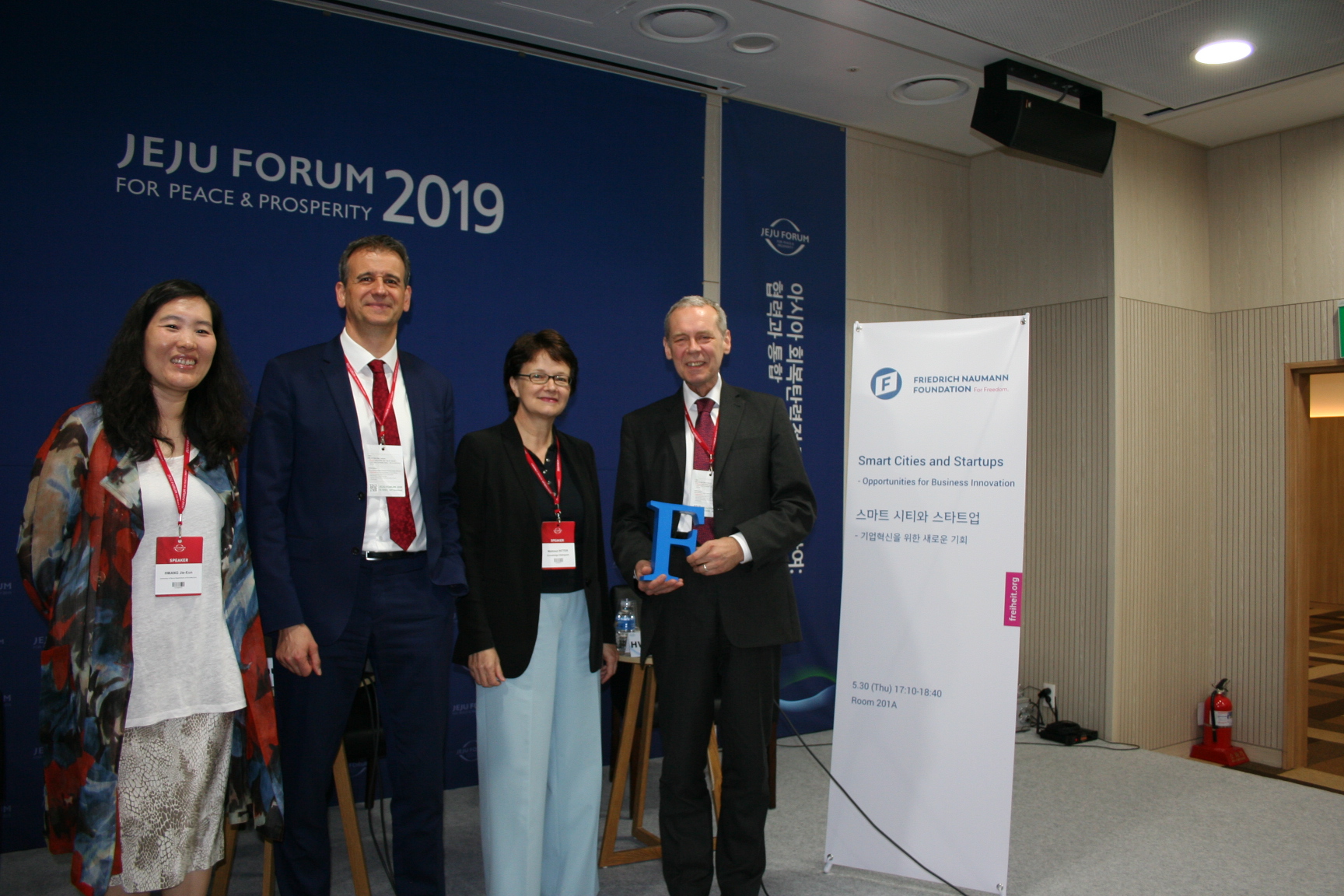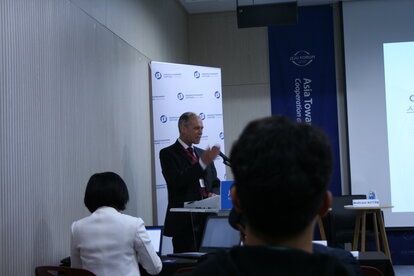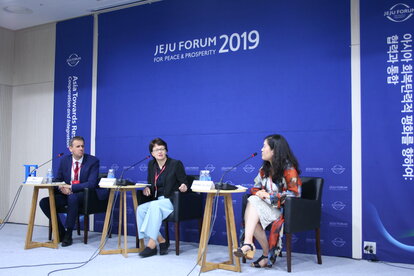Jeju forum 2019: Smart Cities and Startups

The development in technology has brought new trends like smart cities. Urbanization has led to the integration of Internet of Things (IoT) in cities’ planning system, improving living standards, and creating spaces for citizens to participate in governance and in the economy. Among the frontliners are startups that have been lead contributors to smart city innovation.
At a session on Smart Cities and Start-ups – New Opportunities for Business Innovation at the Jeju Forum on 30 May 2019, Marc Bovenschulte, Director of Institute for Innovation and Technology in Germany, highlighted how smart cities have become a playground for startups to implement new technologies, particularly in the areas of traffic control, energy efficiency, and security. He looked back to Berlin’s transformation after the reunification where local entrepreneurs also became a fuel to ignite economic growth.

Bovenschulte quoted the article ‘The 100 Million City: Is 21st Century Urbanization Out of Control?,’ with projections that “suggest cities will swell at an astonishing pace.” “In the next 50 years, only 14 out of 101 mega cities will be located in Europe or America, and the rest will be mainly in Asia and Africa,” shared Bovenschulte. “The changes in demography is related to innovation capability. Problems such as waste management and the lack of basic facilities will need smart solutions,” he added.
Waltraut Ritter, founder of the Knowledge Dialogues in Hong Kong, reaffirmed how technology has transformed citizens into ‘citypreneurs,’ and has empowered them to participate in local governance. She cited Seoul’s National Citizen Feedback Dashboard that “visualises citizens’ feedback and enables public officials to prioritize trending issues based on enhanced data analysis.”

The Sewoon Sanga Complex in Seoul is a prime example of the value of citizen engagement and the effectivity of the concept of bottom-up approach in urban regeneration. Hwang Jie-Eun, Chair of the Department of Architecture at the University of Seoul narrated how Sewoon Sanga was revitalized from a declining megastructure to becoming the center of urban industry in downtown Seoul. “Citizens and the local government are ‘digital twins’ in smart cities. Technology connects them, and they witness each other grow,” pointed out Jie-Eun.
The session was on Smart Cities and Startups was organized by the Friedrich Naumann Foundation for Freedom (FNF). “While technology is crucial in building smart cities, it is merely a tool. What is essential are smart citizens working together towards prosperity and growth,” said FNF Korea Head Dr. Christian Taaks.